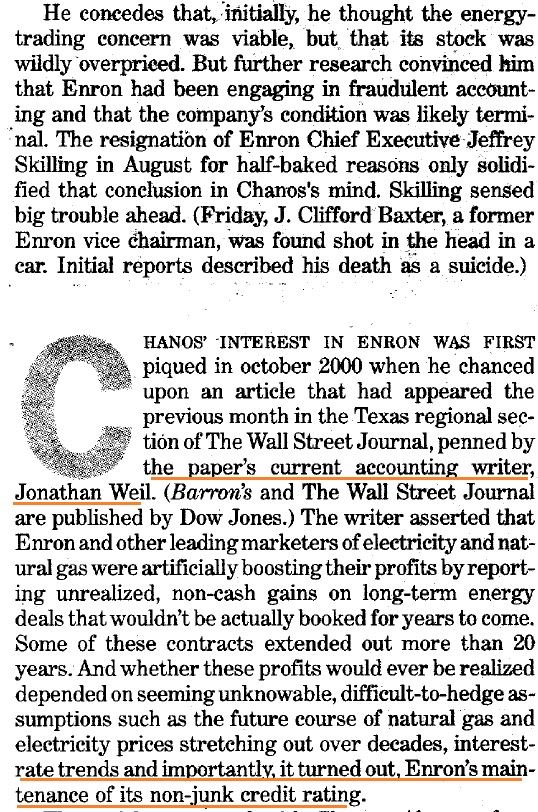
Investors value experience and awareness of the ups and downs of prior cycles. We intuitively look for meaning in the patterns of the past.
However, market analogies present a treacherous path and can distract us from doing the work with a beginner's mind.
However, market analogies present a treacherous path and can distract us from doing the work with a beginner's mind.
Bill Miller took over his fund in 1990: “The economy was in recession, stocks were down, banks — our largest industry concentration — were failing, Saddam Hussein occupied Kuwait, and oil had spiked to about $40 per barrel. It was clearly a terrific time to invest.”
He was often a contrarian buyer: “If you want to boil down everything we do, it's this: The guy with the lowest average cost wins.”
“Systematic outperformance requires variant perception: One must believe something different from what the market believes, and one must be right."
“Systematic outperformance requires variant perception: One must believe something different from what the market believes, and one must be right."
“What we try to do is find companies whose economic models support returns on capital above the cost of capital ...Such companies usually are recognized by the market and valued appropriately, but sometimes they’re available at discounts to intrinsic value.
"These discounts can arise for many reasons. ... temporary factors produce the mispricings that eventually lead to excess returns. One of the most powerful sources of mispricing is the tendency to overweight or over-emphasize current conditions.”
But when the housing crisis started, Miller's contrarian instinct and experience with buying hated stocks in two bear markets ('90 and '02) became a deadly combination. He bought into homebuilding stocks early on and added banks and other financials as they sold off.
It's not that he and his team were unaware of the crisis. On the contrary, they paid close attention to the macro picture and the financial sector.
“The very poor housing fundamentals, exacerbated by a subprime loan collapse and upward repricing of adjustable-rate mortgages, show no signs of improvement. But the market looks forward; by the time those signs are tangible and evident, the stocks will likely be a lot higher.”
But they missed the extent of the underlying problems. Things were different this time and markets had a negative feedback loop as access to credit froze.
“By 1990, housing was in freefall, the savings and loans were going bankrupt (as the mortgage companies did in 2007)...
“By 1990, housing was in freefall, the savings and loans were going bankrupt (as the mortgage companies did in 2007)...
financial stocks were collapsing, oil prices were soaring in 1990, the economy tipped into recession, the government had to create the Resolution Trust Corporation to stop hemorrhaging in the real estate finance markets."
Miller called it "eerily similar to today...”
Miller called it "eerily similar to today...”
“It’s not an accident that our last period of poor performance was 1989 and 1990. The past two years are a lot like 1989 and 1990, and I think there’s a reasonable probability the next few years will look like what followed those years.”
Instead of looking forward, past the recession, the market's attention was collapsing: the true extent of the crisis was only revealing itself.
“This is the only market I’ve seen where you could just read the headlines in the papers, react to them, and make an excess return,”
“This is the only market I’ve seen where you could just read the headlines in the papers, react to them, and make an excess return,”
With financials in free fall, he asked:
“Is it obvious financials should be bought now, having reached the most oversold levels since the 1987 crash, and the lowest valuations since the last great buying opportunity in 1990 and 1991? Or is it obvious they should be avoided...
“Is it obvious financials should be bought now, having reached the most oversold levels since the 1987 crash, and the lowest valuations since the last great buying opportunity in 1990 and 1991? Or is it obvious they should be avoided...
since the credit problems are in the papers every day and write-offs and provisioning will likely continue into 2009?”
Miller realized too late that core tenets of his philosophy and muscle memory had led to the worst mistake of his career.
“The authorities and we were too late to recognize the scope and seriousness of the unfolding crisis and too late to take the appropriate action.”
“The authorities and we were too late to recognize the scope and seriousness of the unfolding crisis and too late to take the appropriate action.”
I profiled Miller's evolution, triumph, tragedy, and comeback here.
“I've been on the top and I’ve been on the bottom,” Miller said a few years ago. “And the top is better.”
neckar.substack.com/p/bill-millers…
“I've been on the top and I’ve been on the bottom,” Miller said a few years ago. “And the top is better.”
neckar.substack.com/p/bill-millers…
• • •
Missing some Tweet in this thread? You can try to
force a refresh










